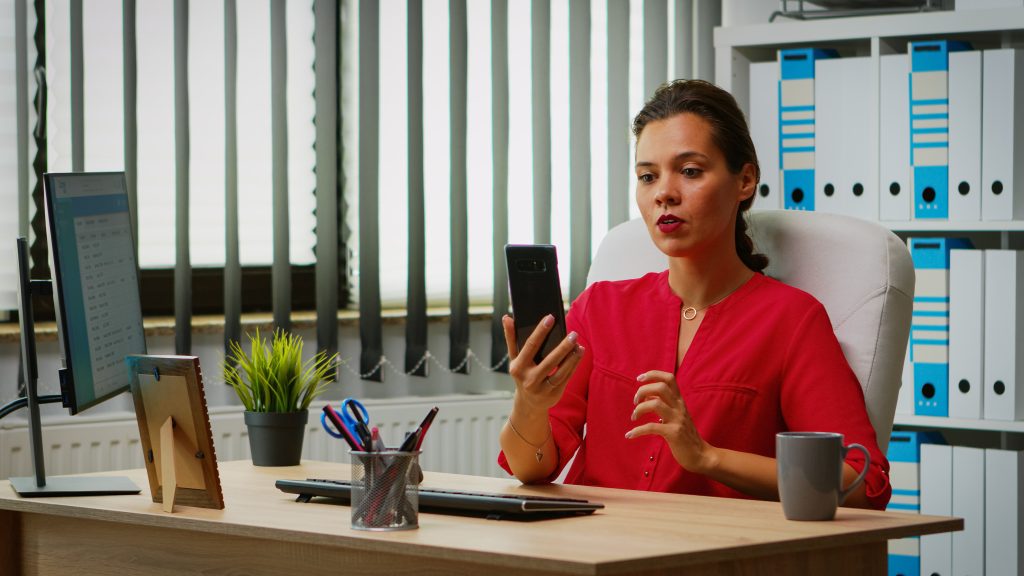“There are only two industries that call their customers ‘users’: illegal drugs and software” – The Social Dilemma (Netflix Documentary)
With the advancement in technology, we often find ourselves spending more time in the reel world rather than the real-world. Technologies have made our lives easier but have disconnected us from the real social world and have connected us to an internet-based social life.
Being online is something that most people love. Especially being active on social media has become the ultimate thing for almost every age group. But do you find yourself unhappy after using social media? Do you also feel FOMO or jealous when you see other’s social and happening life? Do you waste away hours just scrolling through your newsfeed, only to feel more disconnected and dissatisfied? Then you’re not alone and chances are you don’t have healthy habits when it comes to using social media. Though social media is an incredible resource, it can quickly take a toll on your mental health and overall wellbeing.
If you also like “Netflix and Chill”, you must watch the documentary it offers – The Social Dilemma. It will give you enough reason to stick away from social media and its adverse impacts, and give you enough tips to absorb and spread positivity through the powerful tool we call the INTERNET.
So, resist the urge to stay plugged-in to your devices and follow these six healthy online habits.

- Set daily limits: Do you feel that burning desire to check your feed after posting something, just to see if you got any likes? You get a hit of dopamine from each interaction you come across on social platforms and if you don’t moderate your use, you can get addicted to that feeling. Always keep a tab on how much time you are spending online, and set a limit for that time. Commit yourself to stay online within those boundaries and you’ll be amazed to see how refreshed you feel.
- Distinguish between facts and opinions: There is a lot of content on the Internet that isn’t reliable or helpful. With everyone having an opinion sitting behind the screen, the Internet has become a confusing place, especially for young people. Don’t believe everything that you read online and don’t forward those forwarded false messages on social media until you have concrete facts to support it. People can have an opinion and that doesn’t make it a fact, so always distinguish between a fact and an opinion.
- Don’t play the comparison game: What other people share on social media are the highlights of their lives. No matter how authentic they want it to be, it is still crafted and doesn’t reflect the reality in its details. And even if they are authentic in both real and screen life, get inspired and not jealous. No matter how picture-perfect a person’s life appears on social media, every one of us has real, unedited parts of our lives that are raw, difficult, and messy. Remember, nobody is actually living their social media lives.
“When we were making the like button, our entire motivation was ‘can we spread positivity and love in the world?’ The idea that fast forward to today and teens would be getting depressed when they don’t have enough likes or it could be leading to political polarisation was nowhere on our radar.” – Justin Rosenstein, former engineer at Facebook and Google, co-founder of Asana
- Have a purpose: Establish a purpose before you log in. Scrolling through your feed without any actual purpose is harmful, as mindless browsing can lead to anxiety, insomnia, depression, even social media addiction. On the other hand, going online with the purpose of either making meaningful connections, or supporting your friends or actively socializing, or posting a piece of content to engage your friends/community, are some examples of purposeful activities that can lead to good feeling.
- Keep personal facts private: Online privacy is vital for your own safety. Always be aware of the people you are coming in contact with. Are they known to you? If not, do not share personal things with them. Always ensure what kind of audience is exposed to your personal things like, phone number, location, etc. Don’t make personal entries or post personal photos online.
“The way to think about it is as 2.5 billion Truman Shows. Each person has their own reality with their own facts. Over time you have the false sense that everyone agrees with you because everyone in your news feed sounds just like you. Once you’re in that state, it turns out you’re easily manipulated.” – Roger McNamee, Early investor venture capitalist in Facebook
- Pause before you hit ‘post’: Dr. Emerson Eggerichs, in his book, Before You Hit Send, suggests four questions people should ask themselves: “Is it true? Is it kind? Is it necessary? Is it clear?” Before posting anything, take a pause, and ask yourself these questions. Refrain from sharing unverified news, private information, and offensive or inappropriate remarks.
“Before you share, fact check. Consider the source. Do that extra Google. If it seems like it’s designed to push your emotional buttons, it probably is.” – Renée Diresta, research manager of Stanford Internet Observatory, former head of policy at Data for Democracy

Summing up
Upworthy’s Co-CEO Peter Koechley says “If a million people saw this story (comment/post/image/video) would it make the world a better place?”. Always keep this in mind before posting or sharing something.
If you are overwhelmed reading all these, do follow these 6 golden rules of healthy online habits and refrain yourself from falling into the dark side of the web.

